SPOTLIGHT
A year after a damning report, some green shoots at Rahima Moosa Mother & Child Hospital
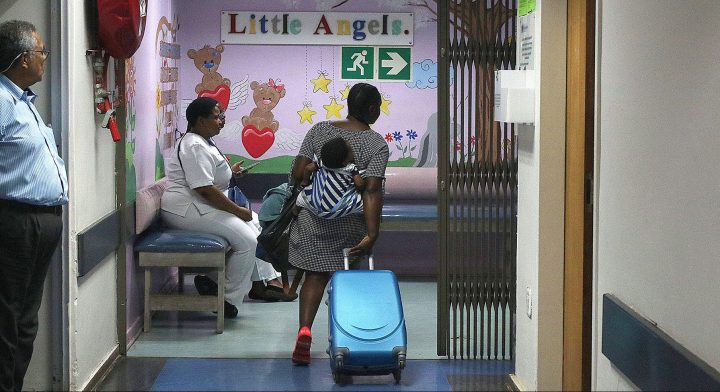
Spotlight visits Rahima Moosa Mother & Child Hospital and sees progress at the struggling facility but also the reality that there’s a long road ahead to undo what a Health Ombud report suggests has been years of neglect and poor management.
It’s been a year since a damning Health Ombud report on the Rahima Moosa Mother & Child Hospital (RMMCH) was released. This month also marks the last deadline the Gauteng health department had to act on recommendations in the report.
At 80 years old, RMMCH is an iconic landmark on the western edge of Johannesburg. But it has gone from a one-time outlier for excellence to being in steady decline, marked by what the ombud’s report criticised as incompetent leadership, neglect and crumbling infrastructure
In May 2022, the hospital suffered a public low point when paediatric gastroenterologist, Dr Tim de Maayer, penned an open letter, slamming multiple failings at the facility. Public outcry over the letter, complaints from hospital users and a widely circulated video of pregnant mothers sleeping on hospital corridor floors prompted the ombud’s investigation.
Read more in Daily Maverick: Dr Tim de Maayer, Rahima Moosa hospital whistle-blower, suspended
When Spotlight visited the hospital at the end of February (2024), there were positive outward signs that recent maintenance work had been completed, per the ombud’s recommendations. Some areas have been painted and surfaces where underground sewer pipes had to be unblocked have been tarred. The stench from overflowing sewage appears to be a thing of the past. Renovations to the antenatal care ward, shown in the video that went viral, are also close to completion and the ward is expected to be operational again by the middle of March.
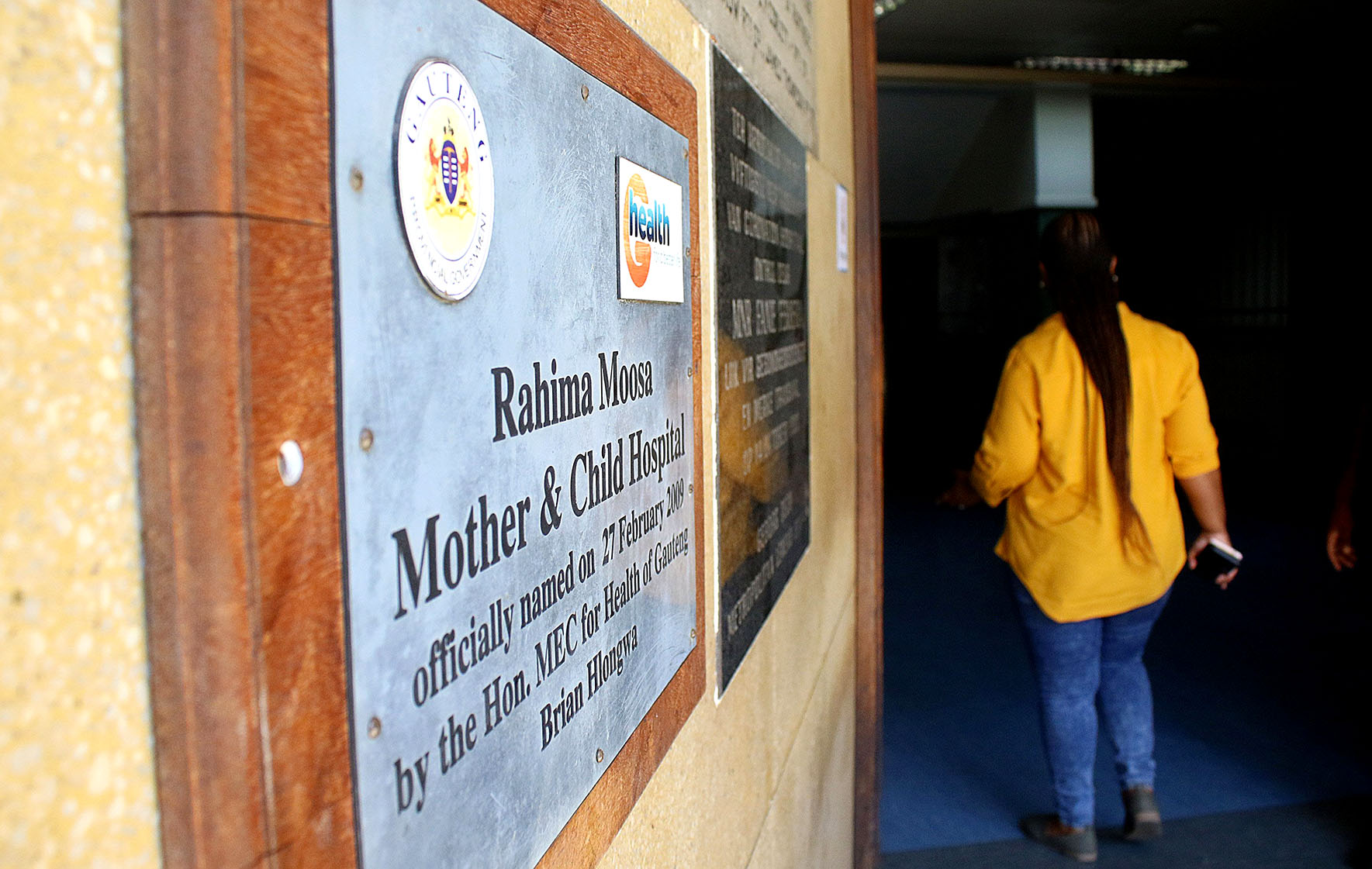
A new granite plaque has been mounted at Rahima Moosa Mother & Child Hospital. (Photo: Denvor de Wee / Spotlight)
Other signs that RMMCH is blipping on radars again include a new granite plaque at the entrance to commemorate the hospital in its 80th year. On noticeboards were flyers advertising a community fun walk for the end of February, an event intended to “reconnect” hospital staff with the immediate community it serves.
A shortage of clerical staff means clerks are shared between departments, resulting in inevitable administrative glitches and delays.
The hospital is also part of the roll-out of the provincial health information system and admin staff were seen enrolling new patients on it. It is a long-awaited system to modernise patient file storage and make files accessible at facilities province-wide. Spotlight has reported on the system.
These encouraging advances since the ombud’s investigation get the thumbs up from hospital insiders. But they flag that even though the Gauteng health department has announced a six-year renewal plan for the hospital and R53-million was approved in December 2023 for the next phase of renovations, the department is playing catch-up and still dragging its feet.
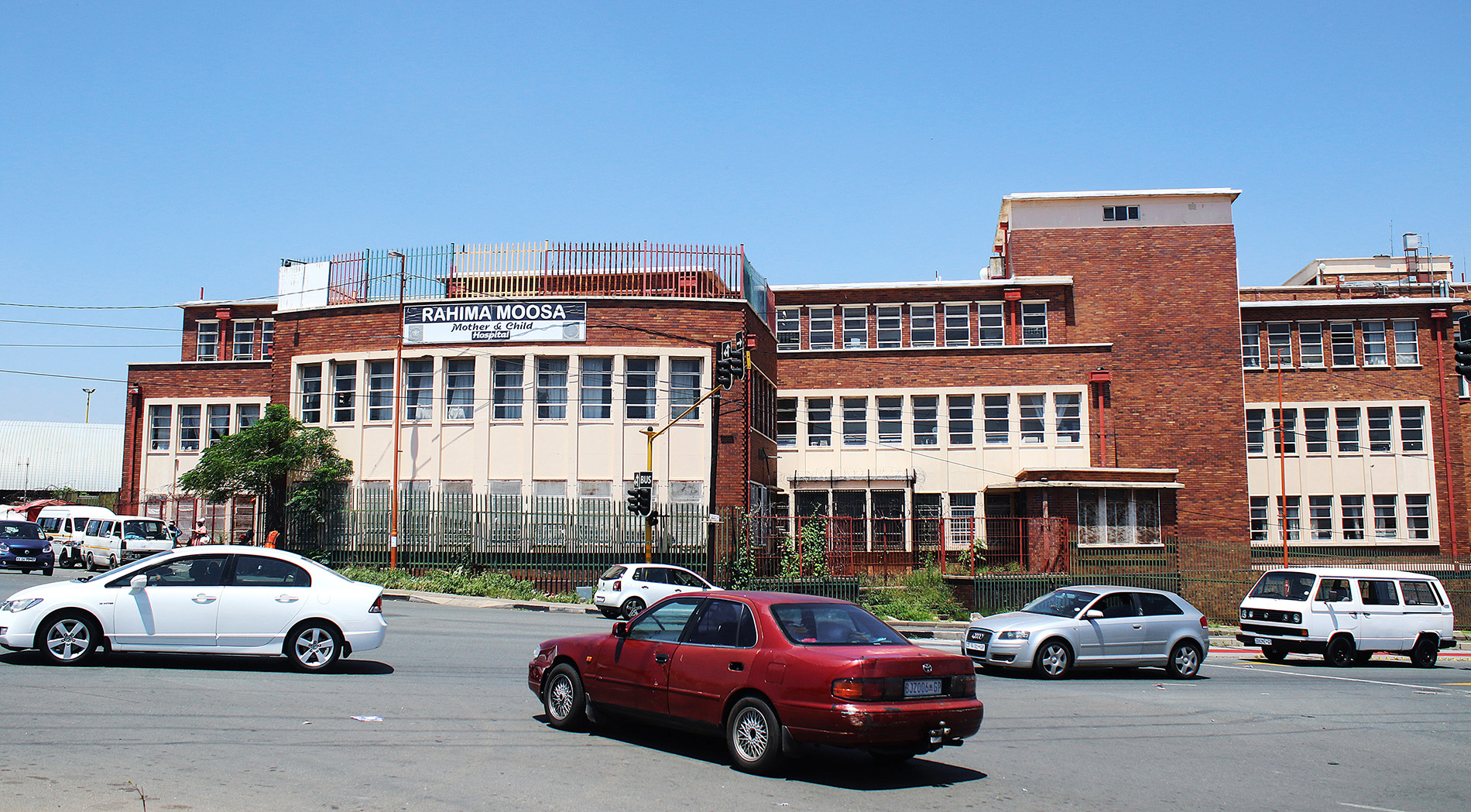
Rahima Moosa Mother & Child Hospital. (Photo: Denvor de Wee / Spotlight)
CT scanner empty promises
For Dr Z, the biggest of her current concerns is that the hospital’s CT scanner has not been in operation for the past 14 months. Dr Z asked not to be named because of the risk of victimisation.
“We have to beg other hospitals to do our scans. So, even when you have a patient who actually needs a CT scan, you think twice – you ask yourself, do they really, really need it or should you just watch them for another couple of months. It’s very demoralising and we keep hearing empty promises from management,” Dr Z says.
A shortage of clerical staff means clerks are shared between departments, resulting in inevitable administrative glitches and delays, Dr Z says.
There is also a growing need for child mental health services but the hospital doesn’t have inpatient psychiatry services and only has sessional psychological services.
“We serve an ever bigger community that has changing needs but our infrastructure has stayed the same and our staff numbers have not increased,” says Dr Z, who has worked at RMMCH for nearly two decades – “my second home”, she calls it.
The hospital has about 1,200 staff members. They serve up to 2,300 people admitted per month as well as 10,000 outpatients each month.
Dr Z tries to stay hopeful, saying “we look to the positive things and we do what we can”, but RMMCH can be a daunting place to work. Safety and security resurfaced as a concern in February 2024, following a car hijacking in the hospital’s parking area at the beginning of the month. The ombud’s report also looked into the hijacking of an intern’s car that took place in its investigation period.
Parking too is a daily frustration – there are only 300 parking spots for staff on the hospital campus but at least 400 vehicles that need a place to park at peak times. Visitors are told to park on the streets.
‘Mr Fixer’
Acting CEO of the hospital Dr Arthur Manning met Spotlight to answer questions put to him and the Gauteng health department.
Manning took up the job in September 2022 as part of the ombud’s recommendation to redeploy the previous CEO, Dr Nozuko Mkabayi, whom the government oversight body found to be a dismal failure.
Manning calls himself “a fixer”. His role, he recognises, has been to help stop the slide for RMMCH, as well as boost staff morale, restore communication channels and regain the community’s trust in the facility.
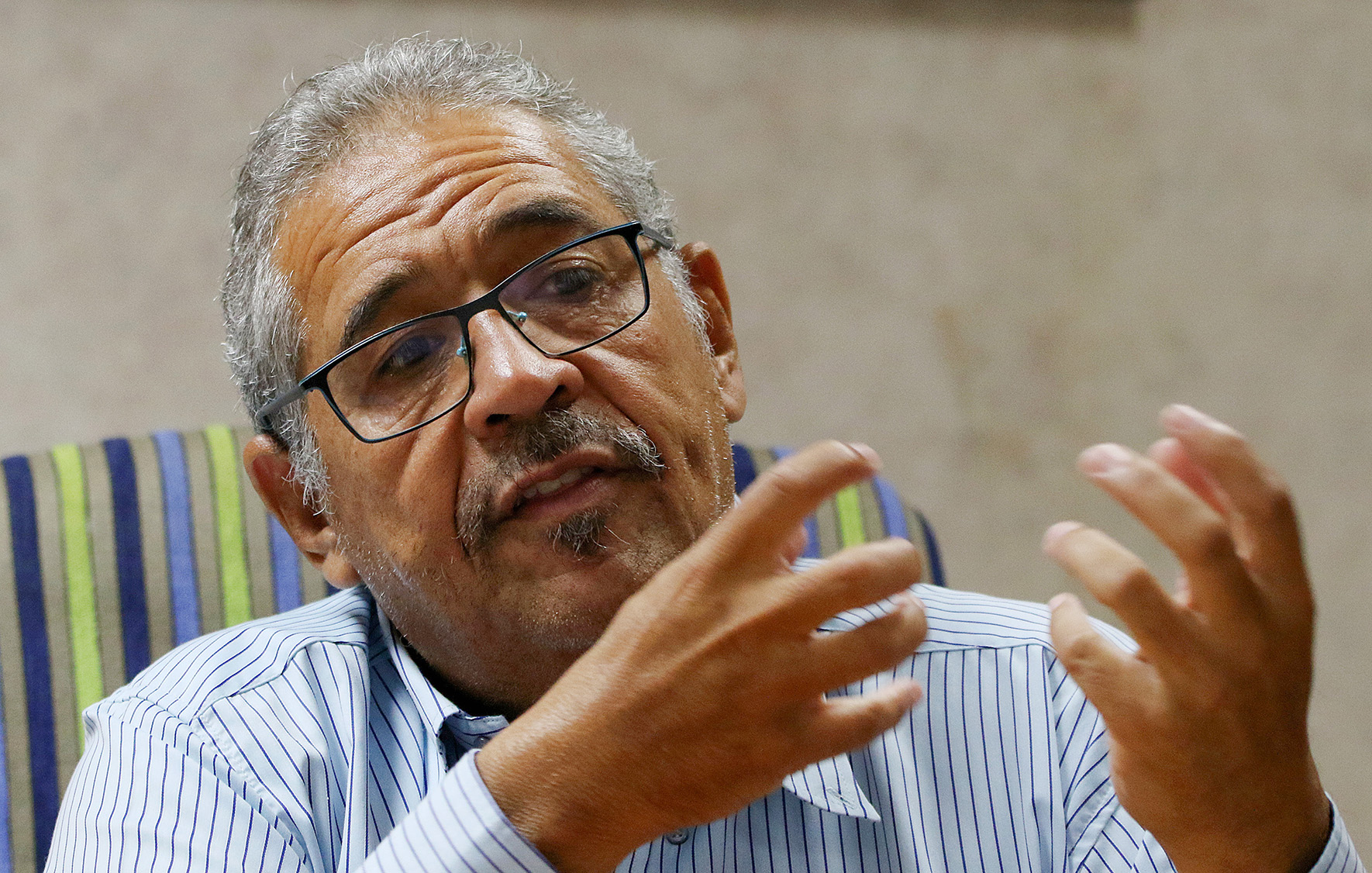
Dr Arthur Manning is the acting CEO of Rahima Moosa Mother & Child Hospital. (Photo: Denvor de Wee / Spotlight)
“We are a system under pressure and we know there is burnout and low morale, but we have improved counselling support and we try to recognise and thank people. We held a nurse’s awards dinner last year exactly for these reasons,” he says.
Manning says the hospital organogram was last updated in 2006, but he has submitted a revised one to the Gauteng health department. It makes the case for more admin and support staff, more junior and training doctor posts and bolstering psychiatric and psychological services. These, he says, are especially necessary because services for children are particularly neglected.
On the matter of the CT scanner, he says “procurement is under way”. It’s a planning failure that the machine is five years beyond its expected lifespan and was not replaced sooner, resulting in the current gap. Manning says the Gauteng health department is now piggybacking on Limpopo’s procurement contract. Piggybacking refers to provisions in the Public Finance Management Act that, under certain conditions, allow a department in one province to procure goods and services via a contract that a department in another province has concluded with a service provider.
According to Manning, Gauteng is currently concluding an X-ray equipment tender that has delayed the procurement of the CT scanner for RMMCH. “Without a tender in place, procurement is more difficult,” he says. Approval to use Limpopo’s tender contract cuts out some red tape and means the CT scanner and maintenance contract have been secured for R30-million. By May, he says, the hospital will also have an MRI scanning facility.
Staff help to spruce up waiting area
Manning has been credited by some for shifting morale and competently overseeing the interventions set out by the ombud’s report. On a hospital walkthrough with Spotlight, he engages casually with staff and patients. He’s also evidently proud of staff-driven initiatives to improve the hospital experience for patients. He points out a freshly painted waiting area in one of the departments where children are playing with new toys and crawling on bright-green artificial turf. More than half the money for this project came from doctors and nurses raising funds by cycling and running in race events in the city.
Working without a scanner takes us back to the 1900s; we are not practising modern medicine and we are not able to diagnose patients early enough.
Keeping staff motivated means their concerns and working conditions – including the parking problem and safety and security – have to be priorities, he says.
Cars are double- and triple-parked in the overcrowded staff parking area. Currently, informal management of this is done via WhatsApp groups where people are notified to move their cars as spots free up. Manning says the hospital is working to secure nearby grounds for additional parking. On safety and security, he says the hospital has stepped up collaboration with local police and the community policing forums to increase patrolling around the hospital, especially around shift changes. He adds: “We have expanded our CCTV camera coverage, requested armed security control and we’re exploring panic button systems.”
A bigger budget and a permanent CEO
There are two key outstanding issues from the ombud’s report. The first is reclassification of the hospital, which is also an academic and training hospital, from a regional facility to a tertiary hospital.
“This is something that involves national, but when reclassification is done it will mean RMMCH’s budgets and grants will be adjusted and we will be able to do so much more,” says Manning.
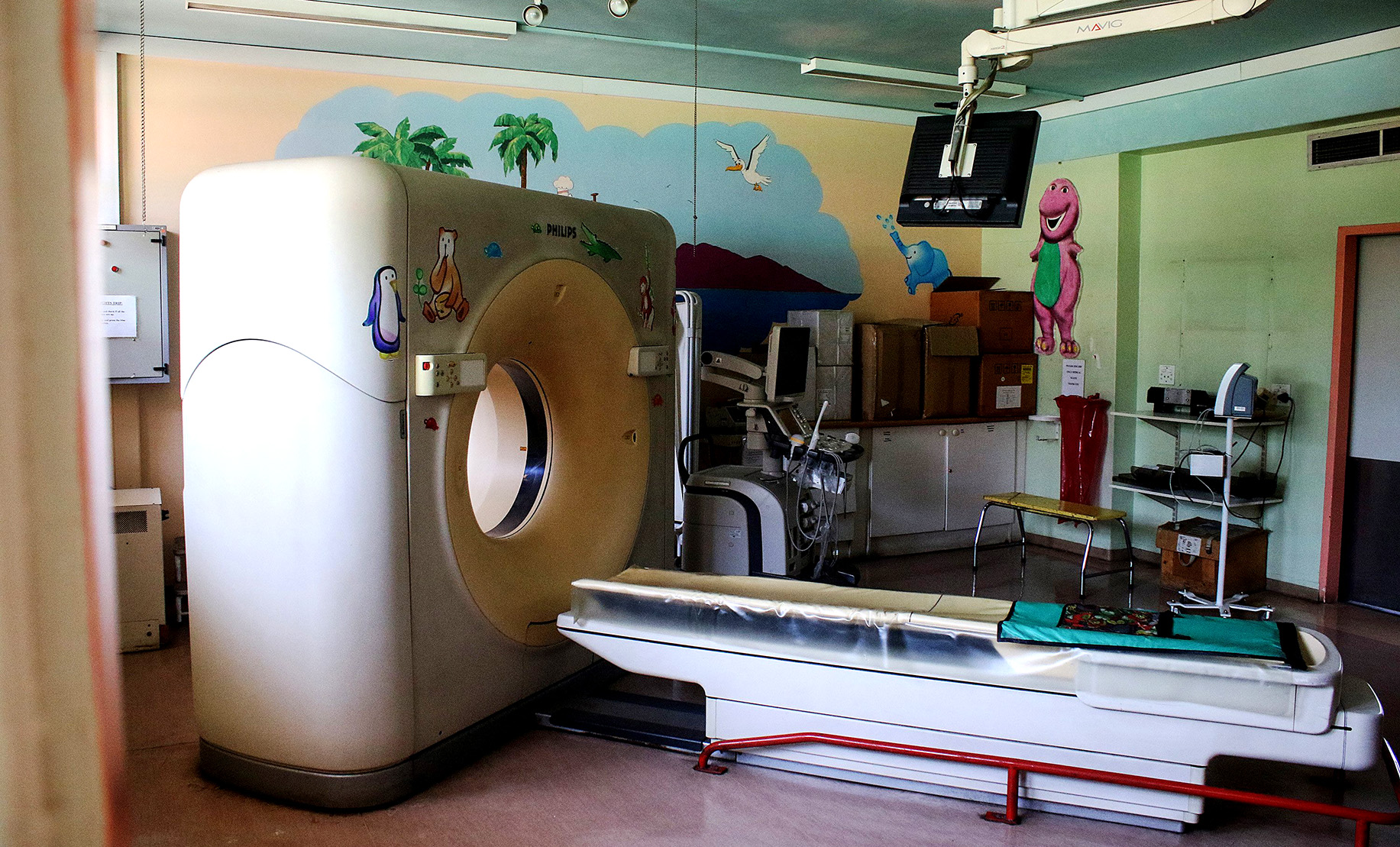
The broken CT scanner at Rahima Moosa Mother & Child Hospital. (Photo: Denvor de Wee / Spotlight)
The second issue is the appointment of a permanent CEO, which Manning says is “being handled by central office”. He side-steps a question about whether his name is in the mix. It’s expected that the new CEO will be announced in April.
Professor Ashraf Coovadia is academic head of paediatrics and child health at Wits University and heads up this department at RMMCH. He says Manning has “been good for RMMCH” but that above the level of CEO it’s the Gauteng health department that needs to get its house in order. He says there has been a lack of communication, consultation, transparency and decisive action from the department for years.
“A CEO can do only so much. When we have acting heads in so many departments who are in acting positions forever, it’s a joke. It means decisions don’t get made or decisions don’t get made for the long run and this compromises how the hospital is run and the care we give patients,” he says.
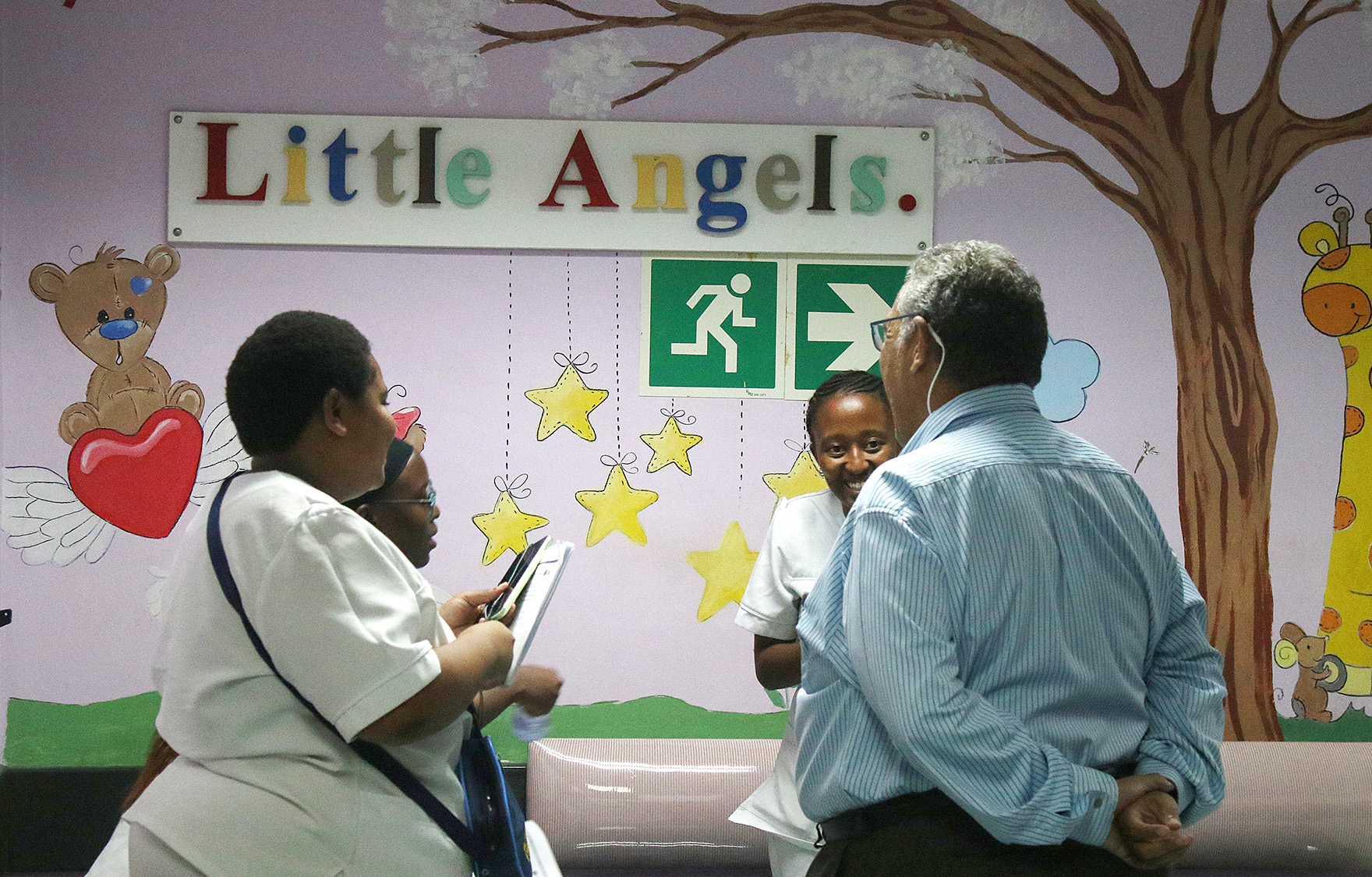
Dr Arthur Manning, the acting CEO of Rahima Moosa Mother & Child Hospital, engages with staff. (Photo: Denvor de Wee / Spotlight)
He adds that when there is less “hospital-floor” consultation and more bureaucratic centralisation from the department it alienates doctors and nurses. “It becomes more and more difficult to try to motivate especially junior doctors who start off wanting to give back to the public health service but become so frustrated that they don’t stay.”
Back to the 1900s
Like Dr Z, Coovadia highlights the CT scanner issue, as well as the long delays and the excuses for the delays.
“Working without a scanner takes us back to the 1900s; we are not practising modern medicine and we are not able to diagnose patients early enough,” he says.
Coovadia adds that while water and electricity supply at RMMCH have improved, infrastructure fixes remain patchy. “There are fewer issues of burst pipes and flooding, but it’s still happening.”
Coovadia has been with the hospital for 26 years, and knows better than most the precariousness of the situation and why the hospital is not yet out of the woods. He says: “The negative attention on the hospital did bring about some positive change. But it can make you cry when you see the slide over the last 10 years… The hospital is not collapsing, but there are daily collapses.” DM
Note: Coovadia is on the board of SECTION27. Spotlight is published by SECTION27, but is editorially independent – an independence that the editors guard jealously. Spotlight is a member of the South African Press Council.
This article was published by Spotlight – health journalism in the public interest. Sign up to the Spotlight newsletter.





















 Become an Insider
Become an Insider
Comments - Please login in order to comment.